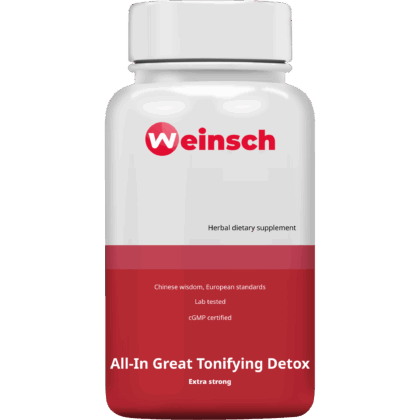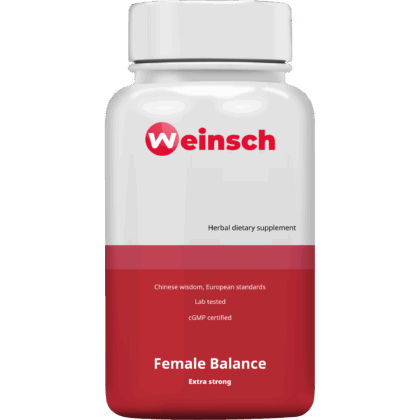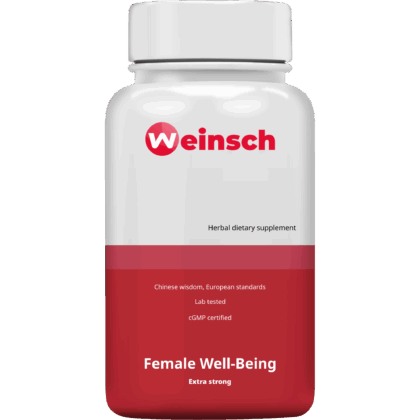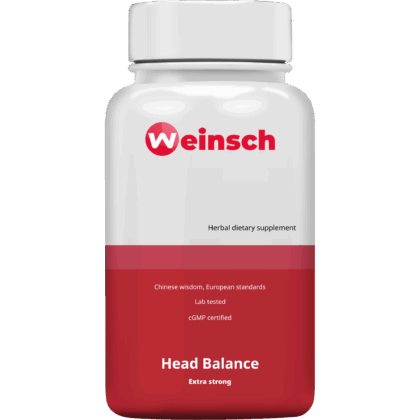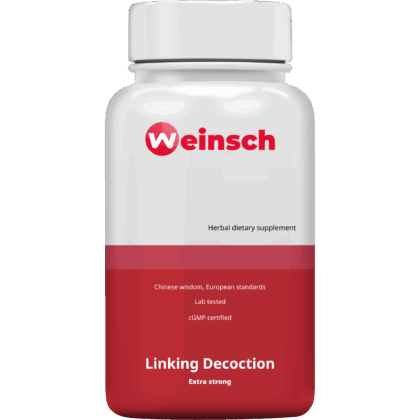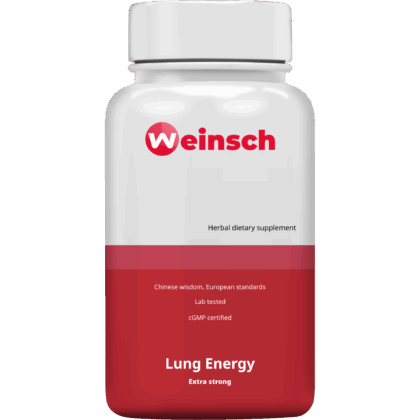Dang Gui (Angelica sinensis) is one of the most important and widely used herbs in Traditional Chinese Medicine (TCM). Known as the “female ginseng,” Dang Gui is renowned for its ability to nourish and invigorate Blood, making it a key herb in formulas that treat women’s health issues, blood deficiency, circulation problems, and pain relief. However, its benefits extend beyond gynecological health, as it also supports the Liver, Heart, and Spleen, and helps with pain management, digestive function, and immune regulation.
Dang Gui is warm, sweet, and slightly acrid, primarily entering the Heart, Liver, and Spleen meridians. It is often used for blood deficiency, irregular menstruation, menstrual cramps, postpartum recovery, anemia, fatigue, and dry skin. Additionally, its blood-moving properties make it useful for pain relief, injury recovery, and circulatory disorders.
Functions & Benefits
- Nourishes and Invigorates Blood
- Treats blood deficiency symptoms such as dizziness, pale complexion, fatigue, and anemia.
- Improves circulation and relieves cold hands and feet caused by poor blood flow.
- Supports postpartum recovery by replenishing lost blood.
- Regulates Menstruation & Relieves Menstrual Pain
- Helps with irregular menstruation, delayed or scanty periods, and dysmenorrhea (menstrual cramps).
- Commonly used for PMS symptoms, including mood swings and bloating.
- Supports fertility and pregnancy health by nourishing the uterus.
- Moistens the Intestines & Relieves Constipation
- Beneficial for chronic constipation due to blood deficiency, especially in the elderly or postpartum women.
- Works as a gentle laxative by moistening the intestines
- Reduces Pain & Inflammation
- Helps with abdominal pain, joint pain, headaches, and traumatic injuries.
- Used in formulas for arthritis, muscle pain, and swelling due to its anti-inflammatory properties.
- Strengthens the Heart & Improves Circulation
- Enhances cardiovascular health by improving blood flow and preventing clot formation.
- Used for chest pain, palpitations, and dizziness related to poor circulation.
- Supports the Liver & Balances Emotions
- Helps relieve stress, mood swings, and emotional imbalances related to Liver Qi stagnation.
- Often used in TCM formulas for anxiety, depression, and hormonal mood swings.
- Boosts Immunity & Prevents Aging
- Contains antioxidants that support immune function and slow aging.
- Protects the skin, hair, and overall vitality by nourishing Blood and Qi.
TCM Indications & Applications
1. Blood Deficiency
- Symptoms: Pale complexion, dizziness, fatigue, weak nails, hair loss, dry skin.
- Dang Gui Benefit: Nourishes and replenishes Blood, restoring vitality.
- Common Formula: Weinsch Menstruation Support – A classic blood-nourishing formula with Dang Gui, Shu Di Huang, Bai Shao, and Chuan Xiong.
2. Menstrual Disorders & Women’s Health
- Symptoms: Irregular periods, painful menstruation, absent or scanty periods, PMS, postpartum weakness.
- Dang Gui Benefit: Regulates menstruation, relieves cramps, and improves uterine health.
- Common Formula: Dang Gui Shao Yao San – Used for menstrual irregularities and abdominal pain.
3. Blood Stagnation & Pain
- Symptoms: Menstrual pain, headaches, joint pain, trauma, muscle tension.
- Dang Gui Benefit: Moves stagnant blood, relieves pain, and reduces swelling.
- Common Formula: Weinsch Blood Power – A blood-invigorating formula used for circulation and pain relief.
4. Constipation Due to Blood Deficiency
- Symptoms: Dry stools, difficulty passing stools, fatigue, pale complexion.
- Dang Gui Benefit: Moistens the intestines and helps with bowel movement.
- Common Formula: Run Chang Wan – A gentle formula for constipation with blood deficiency.
5. Weak Immunity & Chronic Fatigue
- Symptoms: Frequent illness, low energy, weak digestion, poor circulation.
- Dang Gui Benefit: Strengthens the body, supports immunity, and increases endurance.
- Common Formula: Ba Zhen Tang – A Qi and Blood tonic used for overall vitality.
Tongue & Pulse Diagnosis in TCM
- Tongue: Pale with a thin white coating (blood deficiency); Dark or purplish (blood stagnation).
- Pulse: Thin and weak (blood deficiency); Choppy or wiry (blood stagnation).
How to Use Dang Gui
1. Herbal Decoction
- Boil 5–10g of Dang Gui in water for 20–30 minutes and drink as tea.
- Often combined with other blood-nourishing herbs like Shu Di Huang, Bai Shao, and Chuan Xiong.
2. Herbal Pills & Powdered Extracts
- Available in ready-made forms like Dang Gui Wan or Si Wu Tang granules.
3. Culinary Uses
- Dang Gui Chicken Soup – A popular dish for nourishing Blood, great for postpartum recovery.
- Dang Gui & Red Date Tea – A warming drink to support Blood circulation and relaxation.
Precautions & Contraindications
- Not suitable for people with excess heat (e.g., fever, inflammation, or red tongue with thick yellow coating).
- Avoid during heavy menstruation – Since Dang Gui invigorates Blood, excessive use may increase menstrual flow.
- Use with caution in pregnancy – It can stimulate uterine contractions, so consult a TCM practitioner.
- Not recommended for diarrhea due to Spleen Qi Deficiency – Dang Gui can be too moistening for weak digestion.
Conclusion
Dang Gui is one of the most valuable herbs in TCM for blood nourishment, circulation improvement, menstrual regulation, pain relief, and overall vitality. It is widely used for women’s health, cardiovascular support, digestive function, and immune enhancement. Whether taken as a tea, herbal formula, or added to soups, Dang Gui provides deep nourishment for the body and mind.
-
All-In Great Tonifying Detox – Shi Quan Da Bu Pian Extra Strong (Ten Complete Great Tonic Decoction) 120 tablets 10:1 500mg
€ 19,95 -
Blood Power – Xue Fu Zhu Yu Pian Extra Stong (Drive Out Stasis in the Mansion of Blood Decoction) 120 Tablets 10:1 500mg
€ 19,95 -
Calm Mental and Emo – Gui Pi Pian Extra Strong
€ 19,95 -
Cool Liverfire – Long Dan Xie Gan Pian Extra Strong (Gentiana Drain the Liver Decoction) 120 tablets 10:1 500mg
€ 19,95 -
Energy Booster – Bu Zhong Yi Qi Pian Extra Strong (Tonify the Middle Decoction)
€ 19,95 -
Female Balance – Wen Jing Pian Extra Strong 120 tablets 10:1 500mg
€ 19,95 -
Female Well-Being – Shao Fu Zhu Yu Pian Extra Strong (Drive Out Stasis from the Lower Abdomen Decoction) 120 tablets 10:1 500mg
€ 19,95 -
Head Balance – Tong Qiao Huo Xue Pian Extra Strong (Open the Orifices and Invigorate the Blood Decoction) 120 tablets 10:1 500mg
€ 19,95 -
Heart Peace – Tian Wang Bu Xin Pian Extra Strong (Heavenly Emperor Heart-Nourishing Decoction)
€ 19,95 -
Joint Booster – Du Huo Ji Sheng Pian Extra Strong (Angelica Pubescens & Sangjisheng Decoction)
€ 19,95 -
Linking Decoction – Yi Guan Jian Pian Extra Strong 120 tablets 10:1 500mg
€ 19,95 -
Lung Energy – Bai He Gu Jin Pian Extra Strong (Lily Bulb Decoction to Preserve Metal) 90 tablets 7:1 750mg
€ 19,95

